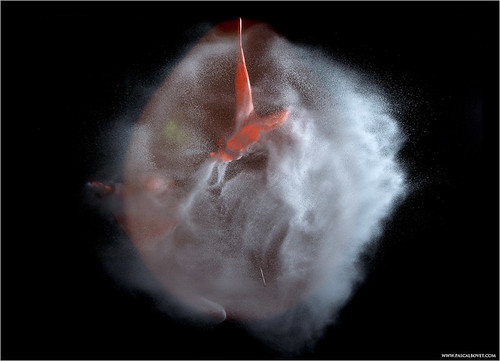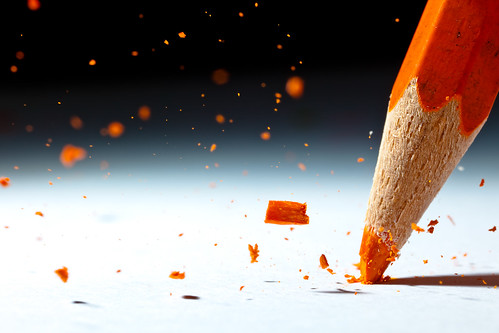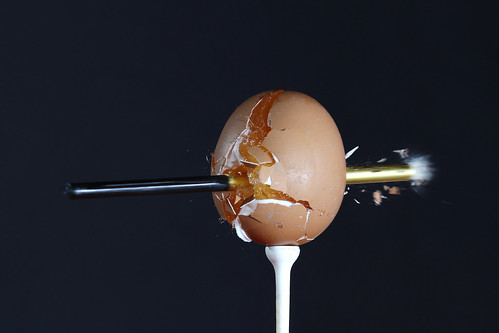So my plan for this ISP is to intern with Eric Voh Lehmden at Studio 563 in downtown Austin, roughly every other week or so. Unfortunately, October is a busy month for the photographers (and me, I realized. Region's this Friday, oops?). So, Eric and I've worked it all out. Yeah, we're good. :) I've been emailing him interview questions--thank you, technology!--and shall be experimenting with a dSLR on my own. Come November, Eric and I will pick up progress on that internship. <insert evil laughter here>
Interview Questions Set #1
Q: Is October an universally month busy for photographers, or just Studio 563? And why?
A: October is a busy month for most wedding photographers in Texas. It has been that way for the 10 years that I have been photographing weddings. It has to do mostly with the weather. It is a nice time of year and people like to get married outdoors. Same is true for the spring months.
Q:What other times of year are busy for photography studios and why?
A: Very busy in April - June. Those are high volume wedding months. People tend to want to get married in either the spring or fall here because the weather is pleasant. No one likes to get married outside in 100+ heat (ie July and August).
Q: What are some different careers and salaries within the industry?
A: There are a ton of different careers in the photography industry. Most of them are broken into a few different categories though - Weddings, Portrait, Commercial, Editorial, Journalism. Weddings and Portraits are pretty explanatory. Commercial and Editorial can cross over a bit, and within Commercial work there are a ton of different things you can specialize in (ie food, product, beauty, fashion etc). Editorial can also be fashion but is generally considered a photo shoot that tells a story. Journalism is working with news agencies (news, sports, entertainment etc). I really don't know salaries that well because it all depends on the person and how busy they are and what they charge specifically. Everyone does it differently so it is hard to say one one person makes over another. That is one of the challenges of this industry...there aren't really any pricing "standards". And even if there are then people undercut or overcharge which be detrimental or beneficial to another photographer (depends on your outlook).
Q: How important is it for an aspiring photographer to obtain an university degree in photography?
A: I don't think it is important at all. I think if you want to make a living doing photography then you may take a few classes in photography, but your main focus should be in how to run a business. Marketing, advertising, knowing your costs and how to make money doing what you love is the most important thing. So get a degree in business or marketing. It will benefit you so much more.
Q: Studio 563 is a very well-established and successful studio; what were some of the key aspects or actions involved in gaining this reputation?
A: Well...it is a lot of hard work. you have to get your name out there. That involves marketing and marketing to the correct people. Those people are your target clients or the people you hope do business with you. But you have to have an ever present approach to getting a good reputation. We try to give each of our clients a great experience which will translate into them telling a few of their friends about us. So word of mouth is a very large part of a successful studio. The best marketing is happy clients.
Q: What are the advantages and disadvantages of automatic settings on a camera?
A: The only automatic setting on my camera I ever use is "A" for aperature priority. That is good to use when you are shooting something when the lighting changes frequently (ie when a bride & groom leave a venue from dark shade to bright sunlight then back to dark shade). That can be a challenge if you are shooting in full manual mode. Other than that I think it is all disadvantage to shoot in "auto" or "program" mode. There is no creativity or allowance for the photographer to make a decision on how they want the photo to look.
---
Eric's given me so much to think about... I think the most surprising thing he said is that a business or marketing degree would be the most beneficial to a photographer. I mean, when I think about it, it makes total sense. "Good photography" is ultimately based on a person's creativity. A person can learn to use the settings of a camera, with all the gizmos and shiny buttons, but anybody can flip a switch. Behind an awesome photograph is a person who has to choose the angle, the frame of the picture, the lighting--all the things that make an awesome photo awesome. Great photographs do more than push a bunch of buttons. Great photographers form images in their minds and capture that desired outlook, all in order to tell a story, to make a person feel something. It's like playing the violin. With my instrument, I have to imagine the emotion I want my listeners to feel, and then I have to convey that emotion through my music. And... emotion can't be taught.
Okay, metaphor over. I think I'm loopy today. Anyways, it's totally possible to learn how to use a camera simply with an instruction book. And just the other day, with my bff Google, I was stalking different photographers' blogs, and I read a bunch of neat tricks. It's not until a photographer experiments on his or her own, playing with light, shadows, exposure, that a photographer finds his style, his brand of totallyawesomecool photos. And that wouldn't be found from a lecture. So if a photographer doesn't necessarily need a teacher to show him how to self-experiment, then wouldn't it be logical that what a photographer really needs is a way to learn how to run a business? Because if the best photographer can't make money, what's the point?







